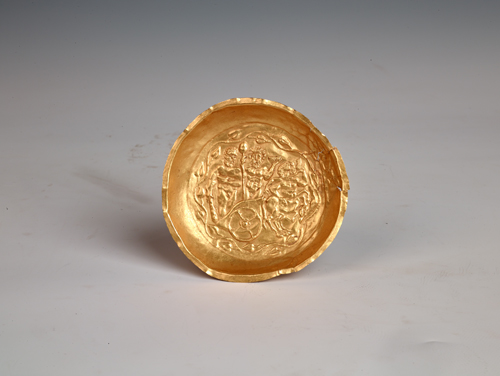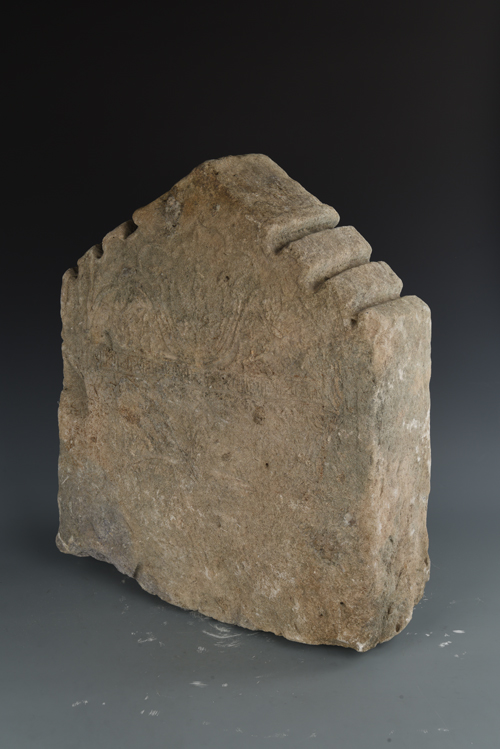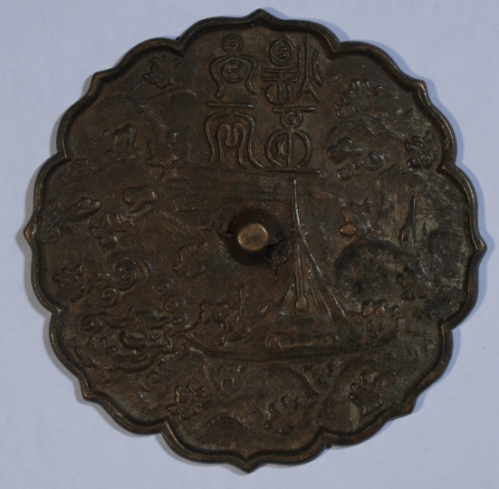Exhibition place:Galaxy Hall, Fashion Gallery, China National Silk Museum
Exhibition time:2020.6 - 2020.8
In ancient times, mountains, rivers, deserts, seas...Human beings are often confined to a relatively closed geographical environment, but it has never been able to block the deep desire of the human heart: communication.
Once there was a road that crossed mountains and deserts, broke through geographical constraints, and connected ancient China, neighboring countries and the West. Caravans of silk, porcelain, wool, and jade came and went with the sound of camel bells. Chasing dreams, monks, emissaries on the road. This road has become a major channel for commercial and cultural exchanges between the East and the West.
This route was once the most representative of China's exports of silk, known as the Silk Road. Despite its name, the Silk Road has not only exchanged silk and silk weaving skills, but also served as a major channel for cultural exchanges between the East and the West. In this way, we can exchange materials and commodities, and technology and culture. These commodities and technologies form the main content of mutual learning along the Silk Road.
The purpose of this exhibition is to tell the story of mutual learning along the Silk Road through cultural relics. The exhibits here are carefully selected from nearly 20 cultural and museological institutions in China. Each set of artifacts will be told by an expert.As the Sutra says, a flower makes a world, a leaf makes a bodhi.
Each piece will touch our hearts and bring us infinite affection and yearning for the Silk Road.
1. Gold Plate with Flower and Figure Patterns
Dynasty:(B.C.386——534)
Diameter: 12cm
Datong Museum

2. Lake Blue Glass & Mixed Beryl String
Dynasty: Han
Hepu Museum


3. Rubbings of the Inscription on the Mount Yanran and the Inscription with the Word “Mount Han”
Inner Mongolia University

4. Brocade with the Word “Nobility” and the Patterns of Bird and Beast
Dynasty: Eastern Han
Length: 44cm, Width: 25cm
Rujiang Temple

5. Blue-white Flower-shaped Plate with Sailing Ship Patterns from Jingdezhen Kiln
Dynasty: Qing(B.C.1736-1795)
Shanghai Museum

6. Black Lacquer Sewing Table with Gold-painted Figure Patterns
Length: 63.2cm, Width:42.5cm, Height: 75cm
Guangdong Provincial Museum

7. Iron- knives, Iron-awl and Leatherware
Early Iron Age
Turpan Museum

8. Blue-white Wax-printed Cotton Cloth with the Goddess Pattern
Dynasty: Eastern Han
Length: 89cm, Width: 48cm
Xinjiang Uygur Autonomous Region Museum

9. Gilded Silver Plate with God-like Man Pattern in the Eastern Roman Period
B.C. 4-6
Height: 4.9cm, Diameter: 31cm
Gansu Provincial Museum

10. Gilded Silver Case with Pomegranate Flower Knot Patterns
Height: 6.5cm, Diameter: 12.3cm
Shaanxi Provincial Museum

11. Gilded Silver Incense Burner in the Shape of a Lotus Flower and Seeds
Height: 15.5cm, Length: 35.2cm
Nanjing Museum

12. Stone Tomb Gate with Sogdian Whirling Dance Patterns
Width: 42.5cm, Length: 88cm
Ningxia Museum

13. Kushan Sculpted Stone Relief of Buddha and Worship
B.C. 2-4
Width: 50.5cm, Length: 27.3cm, Thickness:11.7cm
Lvshun Museum

14. Coral Tombstones of Muslims
Width: 51cm, Length: 61cm, Thickness:16cm, Weight: 38kg
Hainan Provincial Museum

此石碑由珊瑚石雕刻而成。碑额为尖顶,尖顶两侧各有三个山峰形装饰,山峰下刻有生命树图案,生命树下有一长方形方框,方框内刻有阿拉伯文《古兰经》文、墓主名字、“斋月吉日”等。
海南发现的伊斯兰教徒古代墓葬基本上都是在每座墓的前、后竖立一块珊瑚石碑。三亚因地理位置原因,珊瑚石数量众多,早期居住在此的回民因地取材使用珊瑚石作为墓碑,形成特色的珊瑚石墓碑。
墓碑既有鲜明的伊斯兰教民族特色,又有独特的海南地域特色,具有浓厚的海洋文化风格,是研究海南回族历史乃至古代海上丝绸之路的重要实物之一。
15. Latin-language Tombstone
Width: 50cm, Length: 62cm, Thickness: 12.5cm
Yangzhou Museum

墓碑上的宗教题材石刻在尖拱处,描绘了宝座上的圣母子。墓碑中间一段表现了与逝者同名的基督教圣徒凯瑟琳的殉道情节。皇帝威逼利诱都无法使凯瑟琳放弃基督教信仰,最终决定对凯瑟琳施以“破碎轮”刑罚。行刑前,她双手合十跪下祈祷,身旁是酷刑时使用的车轮,或许是因为上方两个天使施展的奇迹,车轮破裂倒在一边,两个行刑者也卧倒在地;因无法将她折磨致死,皇帝只好命令将她斩首斩首,一个刽子手正拔出一把长剑砍向圣凯瑟琳。凯瑟琳殉道后,天使飞来将她的遗体带到埃及的西奈山上。
这座拉丁文墓碑是罕见的元代天主教在华物质遗存,是罗马天主教会在中国传教活动时留下的重要见证。
16. Mantras of the Dharani Sutra in Sanskrit
Width: 21.2cm, Length: 25cm
B.C. 1005年
Suzhou Museum

17. Annotated Calendar of the 4th Year of the Tianfu Period
the Later Jin Dynasty (936-947)
China National Library
18. Rhombic Bronze Mirror with Ship Pattern
Diameter: 16.5cm
Jilin Provincial Museum

19. Wooden Types, Printing Woodblocks, Fragments of Buddhist Scriptures and Documents
 Pay attention to us
×
Pay attention to us
×